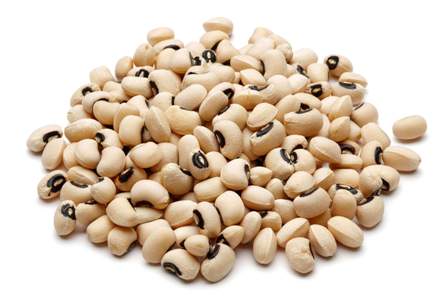Foods/Drinks
Health Benefits Of Garlic
Garlic does more than make our food taste good, it can aid in the healing and even prevention of certain medical conditions.
Garlic, for years, in movies, it has been keeping vampires at bay, but according to mountains of research, vampires aren’t the only things garlic can fend off. Joining the ranks are colds, cancer, heart disease, hypertension, infection and even impotence. Here we will take a look at the various benefits to our health of eating garlic.
Colds: One of the most common ailments garlic has been touted to treat is the cold.
Upon the onset of the sniffles, many people testify that consuming a clove or more of raw garlic takes them away. How can a clove of garlic possibly help? Studies have shown that garlic extract improves immune function, giving our natural defense , system a boost, and helping it conserve our levels of antioxidants in our system. It is this strengthening of the immune system that aids in its support for other health related conditions.
Cancer: For years research has been conducted on the effects of garlic on cancer. A healthy immune system is necessary to fight cancer, and we already know conclusively that garlic supports that system. Studies have been done on the population and in animals, as well as in test tubes. What is determined is that garlic has the ability to reduce the formation of cancerous cells. Garlic is shown to actually block cancer causing compounds from forming, and slow the growth of tumor cells. Garlic is especially helpful in blocking esophageal, breast, stomach, prostate and bladder cancer. Research has proven that compounds in garlic not only slow the rate of growth in a tumor, but can reduce the tumor size by half. When studying the effects on breast cancer, these compounds can actually prevent carcinogens from attaching to breast cells. What are these wondrous compounds? They are diallye disulphide and sallycystein. These compounds form when garlic is crushed. Among the sulfur components of garlic there are some called ajoenes, which are also noted for their “antitumor” abilities.
Heart Disease: Just as there are many factors that cause heart disease, there are many benefits of garlic that aid in preventing and treating it. So how can gallic help keep our heart in check? First, it helps lower our cholesterol levels. It raises our HDL (good) cholesterol levels, prevents LDL (bad) cholesterol from building up on arterial walls. This reduces the chances of plaque forming in our arteries. It has also been shown to lower cholesterol levels by 9% in people who ate 2 cloves of garlic per day.
Recent studies have also shown it to protect the aorta. The aorta is the heart blood vessel that maintains blood pressure and flow while the heart is pumping. Age, poor diet and environmental factors such as smoking can damage the aorta, causing it to stiffen. Studies have also shown that regular consumption of garlic slows the aging of the aorta and helps keep it flexible.
Hypertension: Another heart benefit of garlic is its ability to help control our blood pressure by thinning our blood. Once again the chemical found in garlic, called ajoene, thins the blood and keeps clots from forming. Studies done with general populations have shown that where there is more garlic consumed in a population, there is also a reduced incidence of hypertension and heart disease. Although garlic’s heart healthy benefits may be new to some, for centuries Chinese herbalists have been using garlic to treat people with angina attacks and circulatory disorders.
Infection: Since 1858 garlic has also been known for its anti-bacterial properties. At this time Louis Pasteur discovered that bacterial cells died when they were saturated with garlic. Other cases of its use as an antibiotic in history include WW II, when British doctors used it to treat those wounded in battle, and Albert Schweitzer used garlic to treat typhus and cholera. Garlic is known to have not only antibacterial but antiviral and antifungal abilities as well. It is effective against intestinal parasites, recurrent yeast infections and the growth candida albicans is slowed by garlic. With this in mind, it should be considered only as an aid to antibiotics in fighting infections, as it is not enough to replace them. Garlic can help by stimulating T-cells that help fight infection.
Impotence: Garlic has also been found to be helpful to those dealing with impotence. Folklore dating back centuries has hailed garlic as an aphrodisiac, and now studies have proven this legend to be true. We know that garlic aids in blood circulation and keeps veins and arteries youthful, but that is only one way it helps with impotence. According to researchers, to obtain an erection an enzyme is required called nitric oxide synthase, and compounds in garlic stimulate the production of this enzyme in people who suffer from low levels of it.
Pregnancy: One can also benefit from garlic during pregnancy. According to a study done by doctors in a London hospital, garlic supplementation may help weight-gain for babies that may be at risk for low birth weight. The study also found that the chance of other at-birth risk factors could be reduced, such as pre-eclampsia, which is associated with hypertension.
The list of studies involving garlic and our health could go on and on. Continuous research is being done showing the association between garlic and improved memory and learning function, as well as findings that show it can help prevent the onset of “stress-induced hyperglycemia”. Recently, it has also been studied and found to help in detoxification of bodily systems, by increasing the levels of antioxidants in the body and decreasing the formation of toxic compounds.
So we see the many areas that garlic can help us, but what should we do now? Begin ingesting six cloves a day? First of all, one should never make changes to their lifestyle in regards to their health without consulting a physician first. Your doctor needs to know if you plan to begin supplementing garlic. If you are taking medication for high blood pressure or are scheduled for surgery, garlic intake can affect both of these things, due to its blood thinning and anticoagulative properties, so it is a must to consult with your physician before making any changes or additions.
Foods/Drinks
WEEKEND MENU
Ntubiri is a local delicacy of the Ikwerre ethnic nationality, usually prepared with water yam extract. It is commonly patronised in the day as lunch or some time at night when heavy meal is not required Ntubiri is a great source of fiber, potassium, manganese, copper, and antioxidants. It is linked to various health benefits and may boost brain health, reduce inflammation, and improve blood sugar control.
To prepare a serving for a standard family, get a standard size water yam tuber, crayfish or fresh prown, oil, periwinkle (unprocessed), pepper, salt, onion, and seasoning cube if desired.
Thoroughly wash the yam, peel and grate.Wash your fresh or dry prown, cut the periwinkle, slice your onion, and mix the yam substance with the ground crown, pepper, salt, seasoning and set aside
Set your pot on your source of heat add a little red oil. When hot, put the sliced onion and the washed periwinkle and allow to boil in the oil. Put a little water and then gently put the yam mixture, cover and allow to cook for ten minutes.
The meal can be served with any chilled drink. Enjoy your weekend.
Foods/Drinks
Cowpea And Nutritional Benefits

Cowpea contains flavonoids also called bioflavonoids which are mainly found in legumes, citrus fruits, red wine, apples etc. The antioxidants are very good for the body as it helps in the fight against cancer, reduce cancer risk and other health conditions such as stroke, heart diseases and asthma.
It also contains folate which helps in the body’s red blood cell production and in dead cells regeneration.
Helps Boost the Immune System
Adding cowpeas to your diet may help in boosting your immune system, for example, some of the antioxidants which can be found in kidney beans help to remove the free radicals in the body, thus making the immune system stronger.
Cowpea is an edible bean which is predominately cultivated and eaten in Africa and Asia, and in other parts of the world especially countries in the arid areas.
There are also various species of cowpea or beans present globally, and though they may be commonly referred to as beans, they have names specific to them, this includes Black-eyed peas which are popularly referred to as White or Brown beans, Adzuki beans, Sweet beans, Black Beans, Chickpeas, Kidney beans, Mung beans, Pigeon peas, Pinto beans, Bambara beans etc.
In some countries, beans have its own local names such as Chawli for Blackeye beans in India, Chori for Adzuki beans in India, Ewa for Blackeye beans in Nigeria and also Black Beans (popularly called Akidi), Pigeon peas (fio-fio).
Beans in most countries, especially in Africa is the primary protein food source and can be specially cooked by boiling either as white beans or porridge beans; in Brazil, the black beans are cooked and served with stew and the food delicacy is known as Feijoada.
Cowpea or beans can also be processed into various nutritional grades of products for diverse purposes while maintaining its nutritional value.
Beans can be grounded into flour known as beans flour which is used in the making of moi-moi (beans pudding), Akara (beanballs or cakes) and can be commercially used as a baking flour too.
Foods/Drinks
Cowpea And Nutritional Benefits

The antioxidants which are present in cowpeas and other legumes helps in the removal of the chemical substances or toxins in the body, thereby providing the body with a better health condition.
Induces Sleep
Just like other proteinous foods, cowpeas contains also tryptophan which helps to induce sleep and can help alleviate other related sleep disorders such as sleep apnea, insomnia and more.
It also helps stabilize mood swings, restless especially in the night, anxiety and more.
Helps in Weight Management
It also helps in weight loss, as the fibre (dietary fibre) content in cowpeas or beans can help in reducing appetite and craving for foods thereby eliminating situations of extra foods intake or overeating.
It also contains low calories and also has low cholesterol content.
Improves the Skin
Cowpeas is one of the bodybuilding foods which provides maximum benefits to the body in general, not only does it help in the normal functioning of the body but it also helps improve the skin.
The vitamins in cowpeas such as vitamin A and B, as well as proteins and antioxidants, present helps to improve the skin as it protects it from ageing, wrinkles, etc., and also repair the body tissues.
Makes Bone Healthier
Cowpeas also contains numerous vitamins and minerals which are good for the bone such as iron which only does not help in the prevention of anaemia but also produces collagen which is one of the major components found in the bone.
·It contains magnesium which plays a vital role in the bone structure, this mineral works together with calcium as it helps in the absorption of calcium thereby processing it to provide the bones with the firmness and strength that it needs. it also helps in keeping the calcium level in the body normal.
Manganese is also one of the minerals which can be found in cowpeas as it helps in the absorption of the mineral – calcium, and it also helps in better functioning of the nerves and brains.
·Few kinds of beans such as Pinto beans contain a small amount of calcium which is also one of the main essential nutrients that the bone needs.

